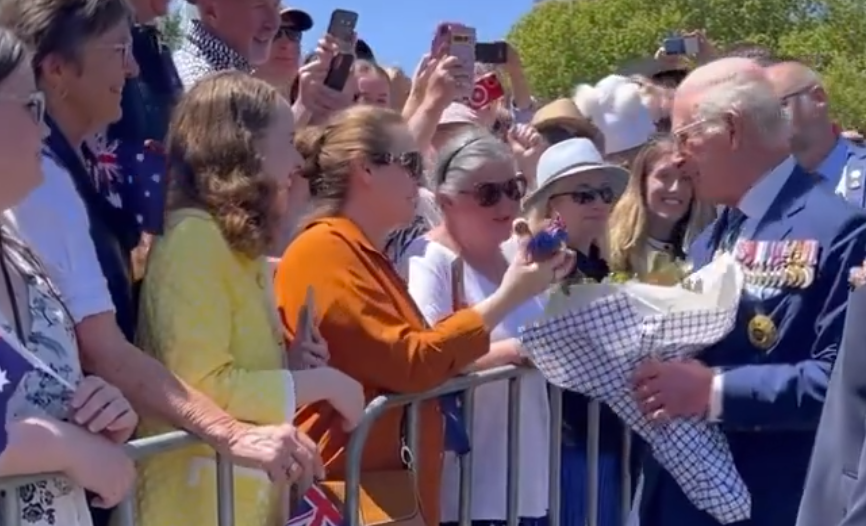Green Party senator Lidia Thorpe interrupted the event with a fiery protest.
Others are reading now
On the fourth day of King Charles III and Queen Camilla’s state visit to Australia, tensions escalated as the monarch faced both health concerns and public protests.
Left Luncheon Ten Minutes After Arrival
The 75-year-old king, who has postponed his cancer treatment for the duration of the trip, sparked alarm after leaving an official luncheon just ten minutes after arriving.
According to Fiesta reporter Concha Calleja, the incident has raised questions about the monarch’s health as he continues his demanding six-day tour of the country, which will conclude on Wednesday, October 23.
During the Monday, October 21, visit to the Australian Parliament in Canberra, King Charles and Queen Camilla were welcomed by a traditional aboriginal dance performance, with Prime Minister Anthony Albanese in attendance, according to El Economista.
Also read
Accused the British of Genocide
The visit took a dramatic turn when Green Party senator Lidia Thorpe interrupted the event with a fiery protest. Draped in a fur coat, Thorpe accused the British monarchy of “genocide” against her people and demanded the return of indigenous lands.
“You committed genocide against our people,” Thorpe shouted, continuing:
“Give us back our land! This is not your land. You are not my king!”
Despite the intensity of the protest, King Charles and Queen Camilla remained calm, carrying on with the event
The protest in Canberra followed days of royal engagements across Australia. King Charles and Queen Camilla have visited a range of locations during their tour, including Sydney, where they were hosted at the iconic Opera House.
In Melbourne, they met with environmental groups and indigenous leaders to discuss climate change and conservation efforts. The couple also paid tribute to Australian soldiers at the Australian War Memorial in Canberra.



